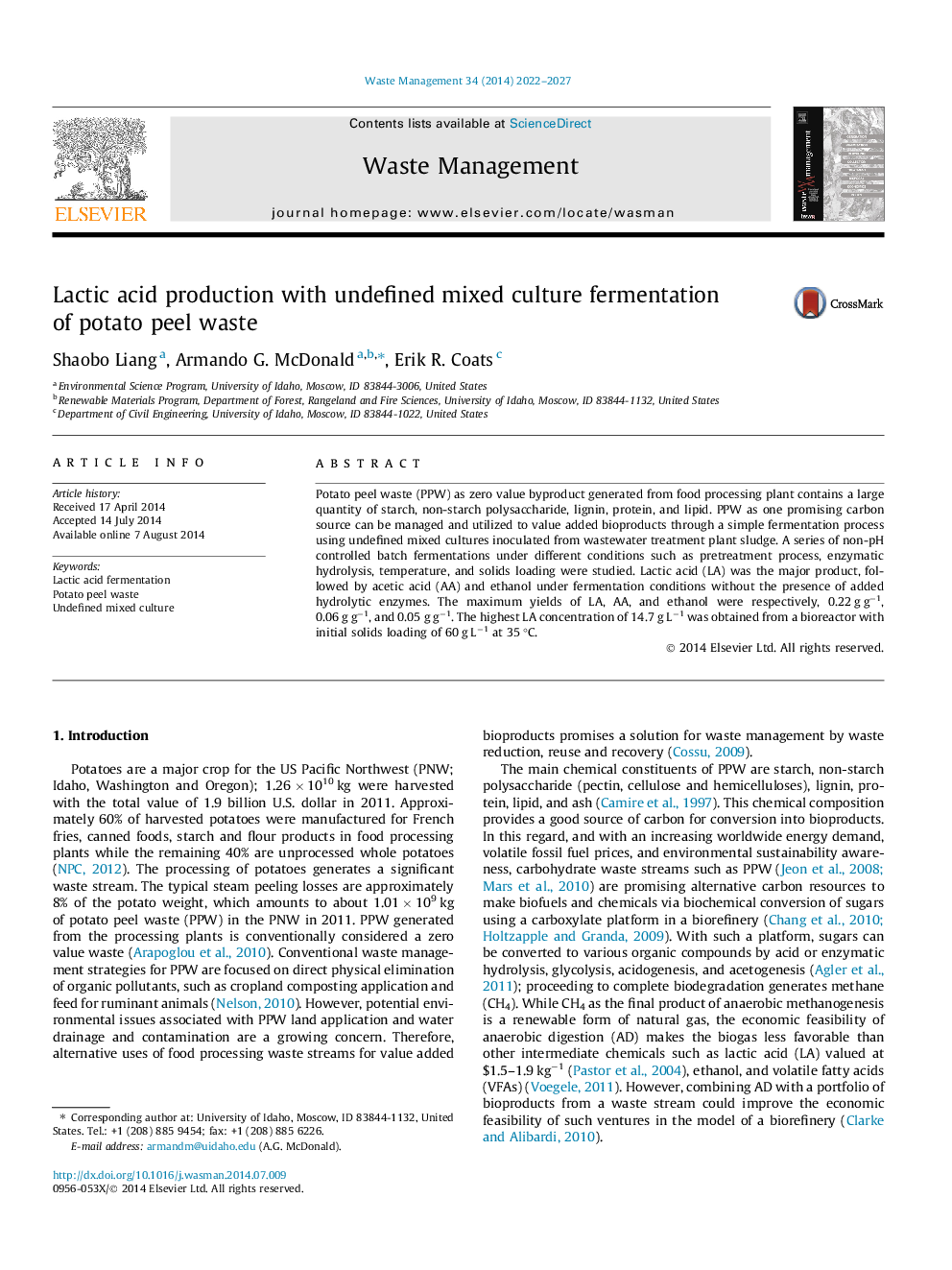| Article ID | Journal | Published Year | Pages | File Type |
|---|---|---|---|---|
| 6354759 | Waste Management | 2014 | 6 Pages |
Abstract
Potato peel waste (PPW) as zero value byproduct generated from food processing plant contains a large quantity of starch, non-starch polysaccharide, lignin, protein, and lipid. PPW as one promising carbon source can be managed and utilized to value added bioproducts through a simple fermentation process using undefined mixed cultures inoculated from wastewater treatment plant sludge. A series of non-pH controlled batch fermentations under different conditions such as pretreatment process, enzymatic hydrolysis, temperature, and solids loading were studied. Lactic acid (LA) was the major product, followed by acetic acid (AA) and ethanol under fermentation conditions without the presence of added hydrolytic enzymes. The maximum yields of LA, AA, and ethanol were respectively, 0.22 g gâ1, 0.06 g gâ1, and 0.05 g gâ1. The highest LA concentration of 14.7 g Lâ1 was obtained from a bioreactor with initial solids loading of 60 g Lâ1 at 35 °C.
Related Topics
Physical Sciences and Engineering
Earth and Planetary Sciences
Geotechnical Engineering and Engineering Geology
Authors
Shaobo Liang, Armando G. McDonald, Erik R. Coats,
